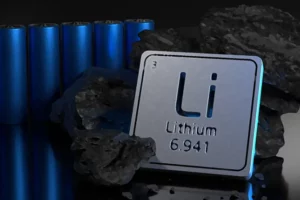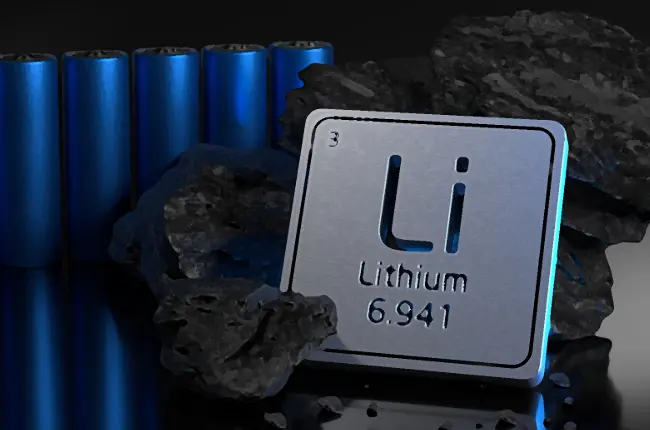Lithium has emerged as a critical element in our quest for a sustainable future. Its unique properties and versatile applications make it a key component in various industries, revolutionizing energy storage, transportation, and more. In this article, we will delve deeper into the increasing importance of lithium and its profound impact on shaping a sustainable world.
- Energy Storage Revolution:
Lithium-ion batteries have sparked a revolution in energy storage, enabling the efficient capture and utilization of renewable energy. As the world shifts towards cleaner energy sources, the intermittent nature of renewables presents a challenge. Lithium-ion batteries offer high energy density, long cycle life, and rapid charging capabilities, making them ideal for storing and delivering renewable energy. By harnessing the power of lithium-ion batteries, we can overcome the limitations of intermittent energy sources and ensure a more reliable and sustainable energy grid. - Electric Vehicles (EVs) and Transportation:
Lithium-ion batteries have transformed the transportation sector by powering electric vehicles (EVs). With the need to reduce greenhouse gas emissions and combat climate change, EVs have emerged as a sustainable transportation solution. Lithium-ion batteries provide the energy density, performance, and rechargeability necessary for EVs to travel longer distances and charge more quickly. The increasing adoption of EVs, driven by environmental concerns and government initiatives, relies heavily on the availability and advancements of lithium-based battery technologies. - Grid Flexibility and Demand Response:
Lithium plays a crucial role in enhancing grid flexibility and enabling demand response mechanisms. By storing excess energy during periods of low demand and releasing it during peak hours, lithium-based energy storage systems help balance supply and demand. This ensures a stable and efficient energy grid, reducing the need for additional power generation capacity and enhancing the integration of renewable energy sources. The flexibility provided by lithium-based energy storage contributes to grid stability, cost-effectiveness, and a more sustainable energy infrastructure. - Portable Electronics and Technology:
Lithium-ion batteries have become the standard for powering portable electronic devices. From smartphones and laptops to tablets and wearables, lithium-ion batteries offer long-lasting and rechargeable power solutions. The compact size, lightweight nature, and high energy density of lithium-ion batteries make them ideal for meeting the demands of our increasingly connected and mobile lifestyles. The growth of the technology sector and the proliferation of portable electronic devices continue to drive the demand for lithium. - Renewable Energy Integration:
As renewable energy sources such as solar and wind power continue to expand, the integration of these sources into the energy mix becomes crucial. Lithium plays a vital role in enabling the efficient utilization of renewable energy. By storing excess energy during times of high production and releasing it during periods of low generation, lithium-based energy storage systems maximize the utilization of renewable resources, reduce wastage, and ensure a smoother integration of renewables into the grid. - Environmental Sustainability:
Lithium’s significance extends beyond its technological applications; it also contributes to environmental sustainability. By promoting the adoption of renewable energy and electric transportation, lithium helps reduce greenhouse gas emissions and combat climate change. The shift towards lithium-ion batteries in various sectors, including energy storage and transportation, enables a significant reduction in carbon emissions, air pollution, and dependence on fossil fuels. Lithium’s role in advancing sustainability aligns with global efforts to create a cleaner and greener future. - Job Creation and Economic Growth:
The growing lithium industry has significant economic implications, including job creation and economic growth. Lithium mining operations, battery manufacturing plants, and related industries generate employment opportunities, stimulate local economies, and attract investments. The expansion of lithium production and the development of associated technologies foster innovation, drive technological advancements, and contribute to economic prosperity.
In conclusion, the increasing importance of lithium in shaping a sustainable future cannot be overstated. From revolutionizing energy storage and driving the adoption of electric vehicles to enhancing grid flexibility and promoting renewable energy integration, lithium is the backbone of our sustainable transition. Its role in enabling clean and efficient technologies is crucial for mitigating climate change and achieving a greener and more sustainable world. As the demand for sustainable solutions continues to grow, lithium’s significance will only continue to rise, paving the way for a brighter and more sustainable future for generations to come.

